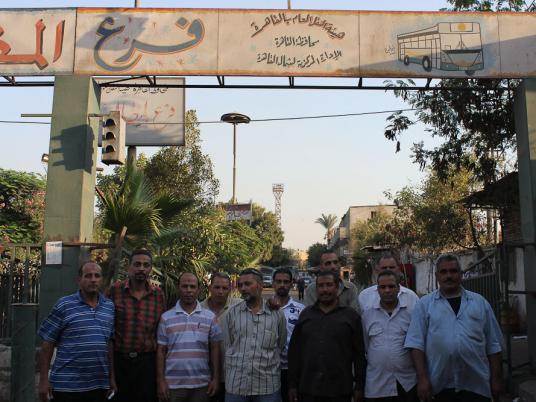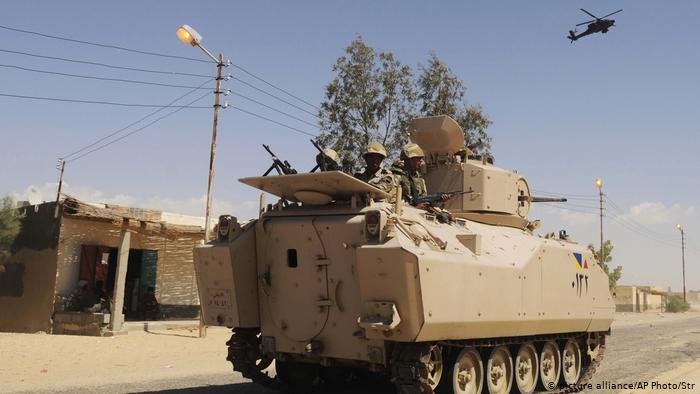
Of the many failings inherent in the Egyptian media, the ability to plaster ambiguous, conspiracy-laden information as front-page fact is right up there at the top of the list. Case in point is the infamous “spy ad” that Egyptian television in its infinite wisdom deemed fit for broadcasting, cementing telephone texting as a threat to the nation, and pushing the xenophobia meter into overdrive.
Thus comes more of the same then in today’s Al-Watan newspaper. Its main headline screams that “sovereign entities” (unidentified as usual) are on the lookout for a jihadist cell in Sinai that is texting its members’ military movements in Sinai. This cell naturally is comprised of foreigners, this time Afghanis, Pakistanis, Arabs and specifically Tunisians, who were seen in a market some time back wearing Afghani/Arab/Tunisian garb and speaking an unidentified Western language (might it be Dutch? Spanish? It could be anything).
A source from this sovereign entity told Al-Watan that not one of them had been taken into custody, nor seen again since their cameo in the market in a small town 25 kilometers from Arish. Meanwhile, clashes continue in Sinai from the fallout of the 5 August attack that killed 16 Egyptian soldiers. Two days ago, security forces had arrested 10 people purportedly linked to the attack in a raid that saw a retaliatory attack that lasted for hours. The “sovereign” source told Al-Watan that five of the 10 had been released because they are not connected to any of the recent attacks in Sinai in any way. It wasn’t indicated if the two Al-Watan reporters behind this story texted any of the information relevant to the piece to their editors’ phones prior to publication.
Moving on, other newspapers place the spotlight on events happening in the country. First and foremost are the numerous sector strikes and the following heavy security crackdown. Al-Shorouk reports that the government “has lifted the security stick to face the strikes,” reporting that security forces failed to forcefully disband the teachers strike but was rather more successful in ending the strike of the Nile University students by force, arresting five in the process.
However, lest one think that today’s papers are out of the Al-Watan type territory, the stalwart of skewed reporting, Al-Ahram, leads with the frankly provocative headline of “Popular rage after increase in transport sector strikes.” Displaying a new design layout that makes one almost pine for the Mubarak era Al-Ahram, the newspaper ignores the crackdowns on the various other strikes to report on the anger and inconvenience citizens suffered at the hand of the public transport sector strikes. Not to dismiss the inconvenience that was certainly suffered by regular citizens, but to make no mention of the crackdowns on the other strikes and highlighting the one strike that inflamed the average citizen in the street is typical of the nation’s most circulated newspaper.
One newspaper that looks like Al-Ahram more and more every day is the unofficial government newspaper and official newspaper of the Freedom and Justice Party. The Freedom and Justice newspaper leads with the visit of Sudanese president Omar al-Bashir in Cairo, extolling it as the widening of the horizons of the “Nile Valley Renaissance.” Renaissance is the favored word of the Muslim Brotherhood, and the attempts to shoehorn it into everything that President Morsy does are, on some level, quite impressive. Naturally, there is absolutely no mention of the international arrest warrant out for Bashir for crimes in Darfur, and that Egypt is required to arrest, rather than host him.
You needn’t go far for some Brotherhood criticism however, as Ibrahim Eissa uses his front-page column in Al-Tahrir newspaper to criticize their monopoly on the constitution. Calling it the constitution of the one percent, Eissa writes that the Brotherhood are preparing a constitution that will “pass their vision of the state filled with ideas, some of which are contrary to civilization. And the Salafis want a constitution that will not bother their minds that reside in the Middle Ages for most hours of the day.”
Eissa contends that the civil forces in the Constituent Assembly are mere window dressing and the constitution will not pass before being signed off by the Brotherhood’s Guidance Bureau, not to mention the large looming shadow of Khairat Al-Shater after approval from their Salafi mates.
Egypt’s papers:
Al-Ahram: Daily, state-run, largest distribution in Egypt
Al-Akhbar: Daily, state-run, second to Al-Ahram in institutional size
Al-Gomhurriya: Daily, state-run
Rose al-Youssef: Daily, state-run
Al-Dostour: Daily, privately owned
Al-Shorouk: Daily, privately owned
Al-Watan: Daily, privately owned
Al-Wafd: Daily, published by the liberal Wafd Party
Youm7: Daily, privately owned
Al-Tahrir: Daily, privately owned
Freedom and Justice: Daily, published by the Muslim Brotherhood's Freedom and Justice Party
Sawt al-Umma: Weekly, privately owned
Al-Arabi: Weekly, published by the Nasserist Party
Al-Nour: Official paper of the Salafi Nour Party




